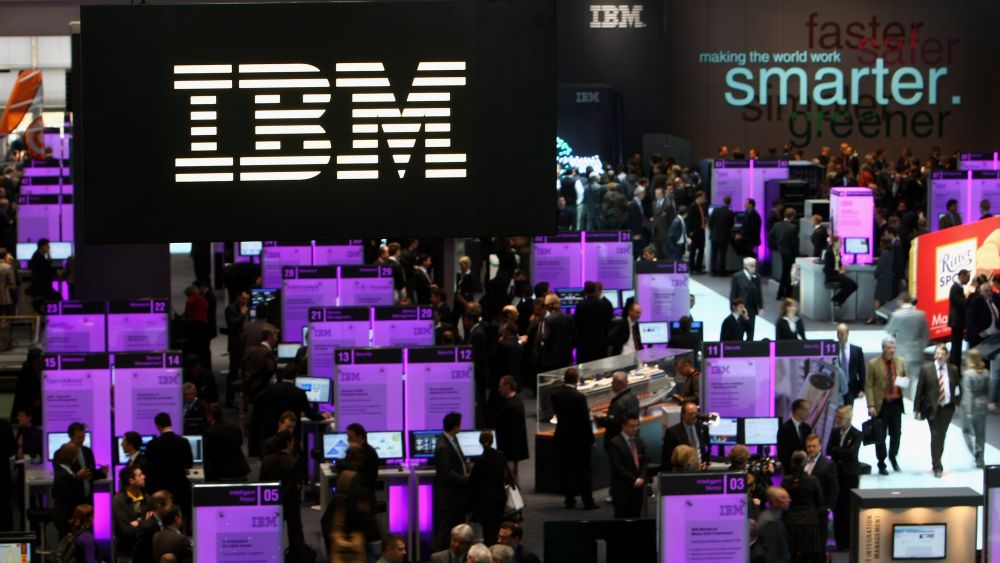The tech world is no stranger to accelerators and the benefits they can provide for startups that are looking to redefine their idea and scale and raise venture capital. It’s a methodology that has proven to be very successful, and the most renowned accelerators such as Y Combinator, 500 Startups and TechStars have propelled startups such as Dropbox, Rappi, and Razorpay from around the globe to become changemakers, disruptors and industry leaders.
Why not extrapolate the accelerator model to nonprofits and bet on a better world?
This is exactly what IBM set out to build. In February the company launched the IBM Sustainability Accelerator, supporting nonprofit and governmental organizations globally who serve communities especially vulnerable to environmental threats.
The Org spoke with Michael Jacobs, IBM’s Sustainability and Social Innovation Leader, on the company’s newly launched flagship social impact program and how through technology IBM has the potential to transform lives when directed with purpose.
Inspired by accelerators, Jacobs said “the term ‘accelerator’ was crucial because of the urgency of the threats the world faces.” Jacobs and his colleagues understood they needed to “get to work now and do so in a collective way, where the initiative was tech focused and IBM deployed existing technology as well as enabled new technologies they would co-create with program participants.”
Each year IBM will define a theme. During the pilot program in 2021, the focus was sustainable agriculture in which three global nonprofits completed the first phase of the program.
For example, based out of Buenos Aires, Argentina, Plan21 Foundation for Sustainable Human Development aims to help smallholder farmers in Latin America manage their crops more sustainably — with the goal of increasing their productivity and income, and contributing to consumer awareness and the development of more responsible markets.
Fabián Román, President of Plan21 Foundation highlights that “at Plan21 we are very enthusiastic to be one of the first partners selected to participate in the program, and are excited to embark on this journey with them on sustainable agriculture. We appreciate IBM’s user-centered design thinking approach through the IBM Garage that considers the realities of our program beneficiaries on the ground. That means designing and building user-friendly technological tools that farmers can use, considering their own realities, work contexts and needs.”
For 2022, the public RFP- Request for proposal- is focused on clean energy. More than 26 million people are pushed into poverty each year due to climate related disasters, according to the World Bank, and IBM believes that by uniting experts and technology to scale and speed up solutions it can help communities most devastated by environmental threats.
The Sustainability Accelerator Program was designed with a two-phase approach, in which IBM accompanies the cohort through a two-year holistic journey.
Phase one is kicked off with the IBM Garage methodology to apply design thinking and agile techniques to fast-track innovation. Organizations will be guided to identify their needs and establish a clear roadmap to design, develop, deploy and continually improve technology to help solve specific public challenges.
During phase two, IBM cross-industry experts will configure resources and technology designed to help participants meet their community and environmental impact goals. Once the two-year period is complete, IBM hopes to continue collaborating with the organizations.
Every cohort will have five companies that have been selected to participate in the accelerator.
The criteria for the 2022 clean energy nonprofits include the following: capacity to impact vulnerable people; ideally some relationship with the nature conservancy; organizations that can leverage IBM support the best; have connections on the ground within the sector; and have a commitment to digital transformation and the results they’re able to create together. Cohorts will have one project per continent as IBM hopes to ensure its group is diverse.
IBM will not be gaining any revenue or equity from the companies in the accelerator, nor will it charge a fee for participation. Being a value-driven business, IBM is focused on making an impact, and the program is consistent with IBM’s values and mission. The program design was also created with the intention of building community. Whenever possible, IBMers on a global level will be leveraged to participate in local projects and engage in creating and implementing solutions where they live. The two-year engagement will be a rewarding experience for both the organizations getting accelerated as well as for everyone who becomes involved.
In terms of success metrics, IBM has established three tiers it will continuously observe.
- The number of vulnerable people directly benefiting from the engagement
- Environmental KPIs such as acres of land where sustainable practices have been introduced
- Technology such as NPS scores, what users say about the solution, usage rates and time spent on the platform.
A new RFP will be launched on a yearly basis, and cohorts will eventually overlap and foster further collaboration. Global sustainable ecosystems will result as part of the program and as Jacobs put it, IBM is “excited to create together.”


